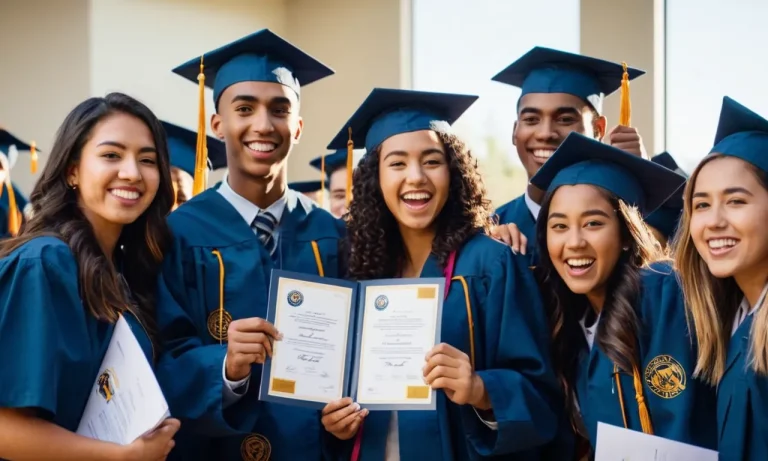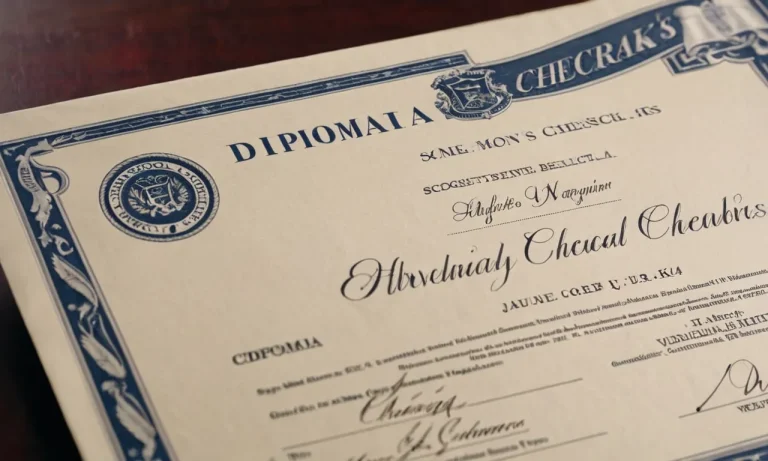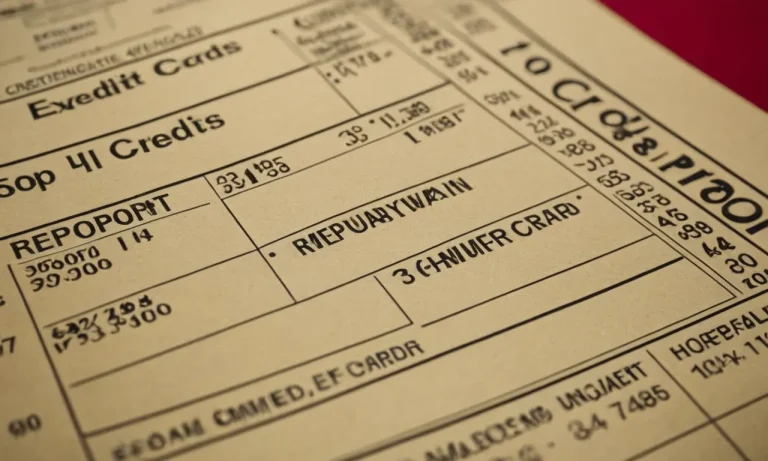Securing an interview for a graduate program is a significant milestone in the application process, but it’s just the beginning of the journey. As you navigate the competitive world of grad school admissions, understanding the implications of an interview invitation can help you manage your expectations and prepare effectively.
If you’re short on time, here’s a quick answer to your question: Getting a grad school interview is generally a positive sign, indicating that the admissions committee has identified you as a promising candidate.
However, it doesn’t guarantee admission, and you’ll need to perform well during the interview to increase your chances of acceptance.
In this comprehensive article, we’ll explore the significance of a grad school interview, what it means for your application, and how to approach this crucial step. We’ll also delve into factors that influence the interview process, strategies for success, and what to expect after the interview.
Understanding the Grad School Interview Process
The journey to graduate school can be both exciting and daunting, with the interview process being a pivotal stage. While receiving an invitation for a grad school interview is undoubtedly a positive sign, it’s important to understand the role and significance of this step in the admissions process.
The Role of Interviews in Admissions
Graduate schools value interviews as an opportunity to gain deeper insights into a candidate’s qualifications, motivations, and fit for their program. Beyond evaluating academic achievements, interviews allow admissions committees to assess an applicant’s communication skills, critical thinking abilities, and potential for success in their chosen field.
According to a survey by the Association to Advance Collegiate Schools of Business (AACSB), over 80% of business schools consider interviews to be a crucial factor in their admissions decisions.
Factors Influencing Interview Invitations
Several factors can influence whether an applicant receives an invitation for a grad school interview. Academic performance, including GPA, test scores, and academic achievements, plays a significant role. However, admissions committees also consider extracurricular activities, work experience, letters of recommendation, and the overall strength of the application package.
Programs with highly competitive admission rates may invite only a select group of applicants for interviews, while others may interview a larger pool of candidates.
- According to data from the U.S. News & World Report, top-ranked graduate programs often have acceptance rates below 20%, making the interview process even more critical.
- A survey by the Graduate Management Admission Council (GMAC) revealed that 😊 over 60% of business schools use interviews to assess fit, communication skills, and motivation.
Types of Grad School Interviews
Grad school interviews can take various forms, each with its own unique challenges and opportunities. Here are some common types:
| Interview Type | Description |
|---|---|
| One-on-one interviews | These interviews involve a one-on-one conversation with a faculty member, admissions officer, or alumnus. |
| Panel interviews | Applicants face a panel of interviewers, often comprising faculty, alumni, and current students. |
| Group interviews | Applicants participate in group discussions or activities, allowing evaluators to assess teamwork and leadership skills. |
| Virtual interviews | Conducted via video conferencing platforms, these interviews have become more prevalent in recent years. |
Regardless of the format, grad school interviews provide a unique opportunity for applicants to showcase their strengths, passion, and fit for the program. While receiving an interview invitation is a positive sign, it’s crucial to prepare thoroughly and present your best self during this pivotal stage of the admissions process. With the right mindset and preparation, you can turn this opportunity into a successful step toward achieving your academic and professional goals.
👏
What Does a Grad School Interview Invitation Mean?
A Positive Sign, but Not a Guarantee
Receiving an invitation for a graduate school interview is definitely a positive sign in your application process. It means that the admissions committee has reviewed your application materials and found you to be a promising candidate worthy of further consideration.
However, it’s important to understand that an interview invitation is not a guarantee of acceptance. 🎉 Many highly competitive programs interview a significant number of applicants, so being called for an interview simply means you’ve made it to the next round.
According to data from The Princeton Review, top-tier programs like Harvard Business School and Stanford University’s Graduate School of Business interview around 20-25% of their applicant pool. So while an interview is a great sign, it doesn’t necessarily mean you’re a shoo-in.
👍 You’ll still need to impress the admissions committee during the interview itself.
Evaluating Your Competitiveness
When you receive an interview invitation, it’s a good time to realistically evaluate your competitiveness as a candidate. Look at the program’s admission statistics, such as average GPA, test scores, and acceptance rates. How do your credentials stack up against the averages?
If you’re well above the averages, it could be a strong indication that you’re a top contender. 😊 If you’re closer to or slightly below the averages, the interview may be a crucial factor in determining your admission.
It’s also helpful to consider the program’s priorities and how well you align with them. For example, if the program emphasizes research experience, and you have an impressive research background, that could give you a significant advantage.
Conversely, if the program values work experience and you’re a recent graduate with limited professional experience, you may need to really shine during the interview to make up for that potential weakness.
Preparing for the Next Step
Regardless of how competitive you perceive yourself to be, the interview invitation means it’s time to start preparing in earnest. Review common graduate school interview questions and practice your responses.
Don’t just memorize answers, but think about how to convey your unique story, motivations, and goals in a compelling way.
It’s also a good idea to research the program and faculty thoroughly. Being able to speak knowledgeably about the program, its strengths, and how you’d be a good fit can make a strong impression. 👏 If possible, try to connect with current students or alumni to gain additional insights and insider tips.
Finally, don’t underestimate the importance of practicing your interview skills. Conduct mock interviews with friends, family, or a career counselor to get comfortable with the format and receive feedback on your responses and overall demeanor.
Remember, an interview is not just about what you say, but also about how you present yourself. With the right preparation, you can maximize your chances of acing the grad school interview and securing that coveted acceptance letter. 🎉
Strategies for Acing the Grad School Interview
Research and Preparation
Preparing for a grad school interview is crucial to make a lasting impression. Start by thoroughly researching the program, faculty, and curriculum. Understand the school’s values, research areas, and culture.
According to a survey by GradSchoolHub.com, 89% of successful applicants spent over 20 hours researching their target program. Tailor your responses to showcase how you align with the program’s mission and goals.
Practice answering common interview questions with a friend or mentor. Anticipate questions about your academic background, research interests, career goals, and reasons for pursuing the program. Prepare concise and compelling responses that highlight your unique qualifications and passion for the field.
Remember, confidence and enthusiasm can go a long way in an interview setting.
Highlighting Your Strengths and Fit
During the interview, focus on demonstrating how your skills, experiences, and interests align with the program’s offerings. Provide specific examples from your academic, research, or professional background that showcase your abilities and achievements.
Don’t just list your accomplishments; instead, explain how they have prepared you for success in the program.
Emphasize your fit with the program by expressing a genuine interest in the faculty’s research areas and potential collaborations. Show that you’ve done your homework by asking insightful questions about the curriculum, facilities, and opportunities available. This not only demonstrates your enthusiasm but also your commitment to making an informed decision.
Effective Communication and Professionalism
Effective communication is key to making a positive impression during the interview. Practice active listening, maintain eye contact, and respond thoughtfully to questions. Avoid rambling or providing overly scripted answers.
Instead, aim for a natural and engaging conversation that showcases your ability to think critically and articulate your thoughts clearly.
Professionalism is also essential. Dress appropriately, arrive on time (or a few minutes early), and maintain a positive and respectful demeanor throughout the interview. Remember, the interview is an opportunity to showcase not only your academic and intellectual abilities but also your interpersonal skills and potential fit within the program’s community.
By following these strategies, you’ll increase your chances of acing the grad school interview and leaving a lasting impression on the admissions committee. Good luck! 👍
After the Interview: What to Expect
Timelines for Decisions
After the grad school interview, the waiting game begins. The timeline for receiving a decision can vary widely, depending on the institution and program. According to GradSchoolHub, some schools may notify applicants within a few weeks, while others may take several months.
On average, most programs aim to send out decisions by late March or early April for fall admission. It’s essential to be patient and avoid constantly checking for updates, as this can add unnecessary stress.
During this period, the admissions committee carefully reviews each application, considering various factors such as academic performance, test scores, letters of recommendation, personal statements, and interview impressions.
They may also be waiting for additional information from applicants or conducting further interviews. Remember, no news is not necessarily bad news, and the process can take time.
Follow-up and Thank You Notes
After the interview, it’s considered good etiquette to send a thank-you note or email to your interviewers. This gesture not only shows your appreciation for their time but also reinforces your interest in the program.
😊 In your note, you can briefly reiterate your qualifications and enthusiasm for the opportunity, and even mention any specific points from the interview that resonated with you.
Some experts suggest following up with the admissions office a few weeks after the interview to inquire about the status of your application. However, be cautious not to come across as impatient or demanding.
A polite and professional follow-up can demonstrate your continued interest, but avoid excessive or frequent inquiries, as they may be perceived negatively.
Dealing with Rejection or Acceptance
Receiving a rejection letter can be disheartening, but it’s important to handle it gracefully. If you’re rejected, take some time to process the news, and then consider reaching out to the admissions committee for feedback.
This insight can be invaluable for improving your application for future endeavors. 👏 Remember, a rejection from one program does not define your worth or potential.
On the other hand, if you receive an acceptance offer, congratulations! 🎉 Take a moment to celebrate your achievement, but also carefully review the details of the offer, including deadlines, financial aid packages, and any required next steps.
If you’re considering multiple offers, don’t hesitate to reach out to the programs with questions or to negotiate better terms.
Ultimately, the grad school interview process can be a rollercoaster of emotions. Maintaining a positive attitude, being patient, and focusing on your long-term goals can help you navigate this journey with resilience and grace.
Conclusion
Getting a grad school interview is a significant achievement that deserves recognition. It signifies that your application has caught the attention of the admissions committee, and they see potential in you as a candidate.
However, it’s important to remember that an interview invitation is not a guarantee of admission.
The interview process is a crucial opportunity to showcase your qualifications, passion, and fit for the program. By thoroughly preparing, highlighting your strengths, and effectively communicating your goals and motivations, you can increase your chances of making a lasting impression on the interviewers.
Regardless of the outcome, the grad school interview experience can be a valuable learning opportunity. It allows you to refine your communication skills, gain insights into the program and institution, and potentially receive feedback that can guide your future endeavors.
Embrace the process with confidence, professionalism, and a growth mindset, and you’ll be well-equipped to navigate the next steps in your academic journey.






